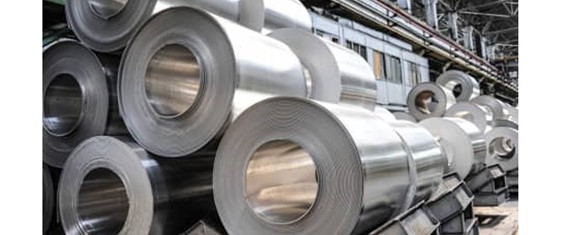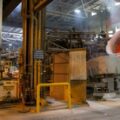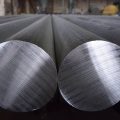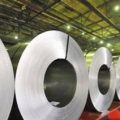A new report for the European aluminum industry by independent commodity analyst CRU highlights the negative impacts of one of the Carbon Border Adjustment Measures (CBAM).
According to the study, European aluminum smelters will become uncompetitive if the CBAM covers indirect emissions and existing carbon leakage measures are eliminated. The report also forecasts that aluminum production costs will increase by 24% to 31% while providing insight into the complexity of designing a circumvention-proof CBAM regulation.
In addition, the Assessment of European Carbon Border Adjustment Mechanism study, conducted by business intelligence analysts CRU international on behalf of European Aluminium, models the impact of CBAM on primary aluminum and selected downstream products under different conditions.
“Our study reveals that, under the current CBAM proposal, third country fossil fuel-based aluminum producers will pay lower indirect carbon costs than European producers using decarbonized energy due to the unique design of the EU electricity market. Therefore, the inclusion of indirect emissions in a CBAM will not necessarily improve the competitiveness of European smelters. We have also quantified and modeled the significant cost increases expected in the value chain for the most commonly used aluminum semi-finished products,” says Zaid Aljanabi, head of Aluminum at the consulting firm CRU.
The study also points out that the higher indirect carbon costs of European producers under the Emissions Trading Scheme (ETS) determines that imports of primary aluminum for semi-manufacturing could increase by up to 43% and total value added by up to 77% in the event that a large part of EU production is substituted.
Also, if indirect emissions are included in the CBAM and carbon leakage measures are completely eliminated, European smelters will lose competitiveness, as they will continue to have higher indirect carbon emissions than importers due to the EU ETS. All this in the context of a historical loss of production loss of more than 900,000 tons between 2021-2022.
According to the study, the current CBAM proposal may further unlevel the playing field between European and non-European aluminum producers. In addition to the higher carbon costs for European companies, the study also points to the high risks of circumvention and the challenges of implementing CBAM for the highly complex aluminum value chain.
“The amendments proposed in the European Parliament to accelerate the inclusion of indirect emissions in the CBAM will have a destructive impact on the European aluminum value chain,” concludes Paul Voss, CEO of European Aluminium.











